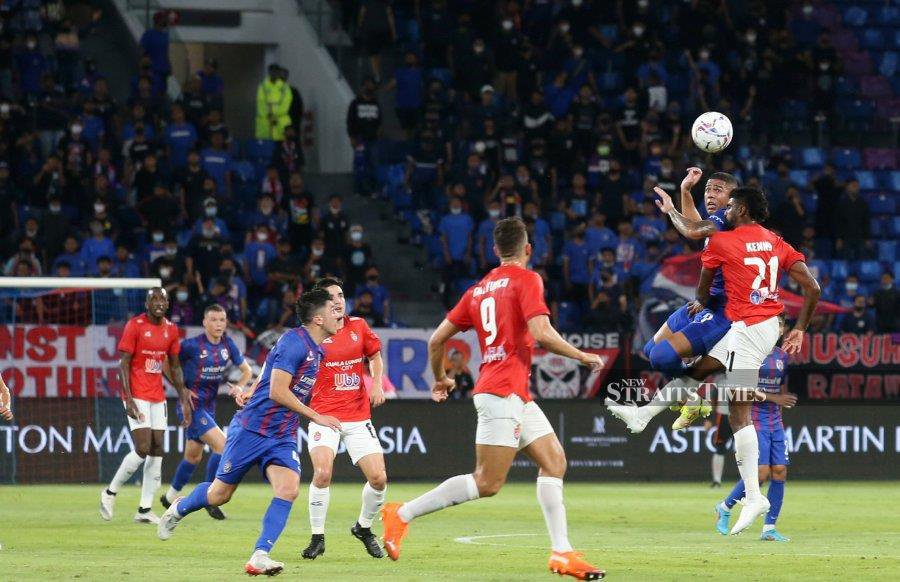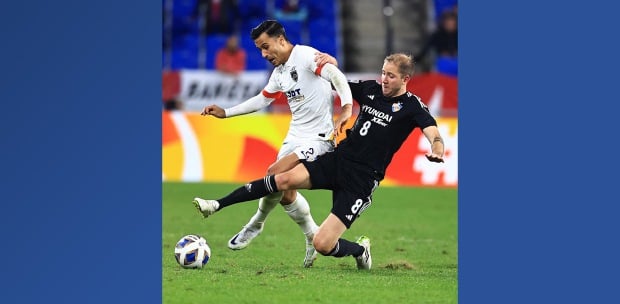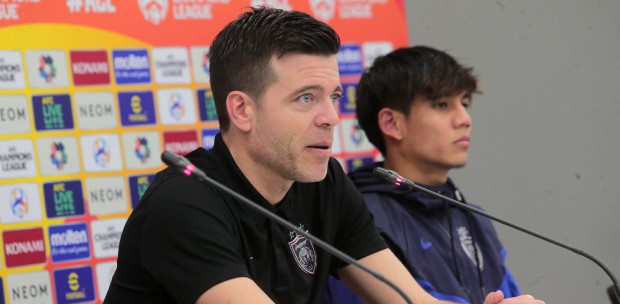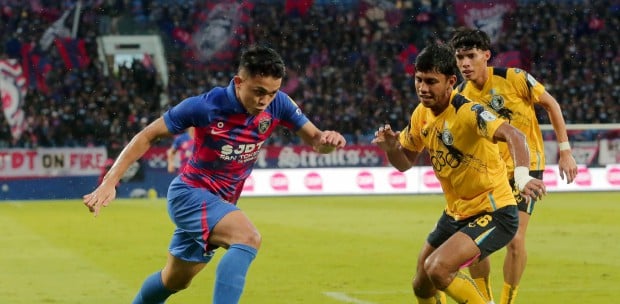KUALA LUMPUR: The Super League next season will be significantly different. It will be expanded from 12 to 18 teams, but will things stay the same at the top or will there be new champions?
More teams, more challengers to Johor Darul Ta'zim (JDT), the well-oiled title-gobbling machine? Well, that seems to be more "practice matches" for the Southern Tigers who had won eight consecutive Super League titles since 2015.
JDT's great organisation and financial might should see them dominating the Super League for years to come, no matter in what form the competition is revamped, but is there any chance for the poorer teams to challenge for titles?
In the English Premier League, unfashionable Leicester City did defy the odds to win the coveted title in the 2015-16 season after upstaging mighty Manchester City. The Thai-owned club spent only £28.9 million (RM155.3 million) compared to Man City's war chest of £124.4 million.
Many average M-League teams dream of "doing a Leicester" but in reality, it's near impossible, especially for those with a shoestring budget. They got to be realistic and pragmatic, go for lower and achievable goals like winning a cup title (forget about the league) and earning a berth in continental club competitions.
On this, KL City coach Bojan Hodak, who won the Super League with Kelantan in 2012 and JDT in 2014, said the smaller teams are in no position to punch above their weight.
The Croatian, who guided KL City to the Malaysia Cup title last season, said domestic cup competitions still offer hope to the smaller clubs.
"It's near impossible for smaller teams to challenge for the league title, only Leicester had done it in recent times. The league is always difficult as you need a strong and big squad for it. Worldwide, it is often the team with the bigger squad winning the league title," said Hodak.
"With more matches in the league next season (due to the expanded league), those with a small squad will have problems maintaining their form.
"JDT have the best 20-30 local players because they can afford it. There are always new young players coming up but at times they are not ready for top-flight football.
"The smaller teams should focus on Cup competitions as there are fewer matches to play, and with a bit of luck, there's a good chance to be champions.
"The fact that Cup competitions offer slots in the Asian club competition is good motivation for the players.
"In Europe, players from smaller clubs want to play well in continental competitions to earn a transfer to bigger teams. But in this part of the world, player selling and buying is not explored well," said Hodak.
Meanwhile, former Kedah coach Azraai Khor, who achieved the M-League treble twice (winning the Super League, FA Cup and Malaysia Cup in 2007 and 2008), said the post-Covid-19 situation has further put smaller teams at a disadvantage,
"I see most teams in the M-League facing financial constraints post-Covid-19. Most clubs are still not professionally managed and some still rely on state governments for funding.
"Sometimes even with a smaller budget, you could sign quality players to help to close the gap but it all depends on proper scouting.
"The financial part of any club is crucial. If not, you won't be able to challenge heavyweights like JDT. The next best option is to focus on Cup competitions, which means lesser matches for a better chance of winning it."





